Unlocking the Advantages of CNC Mill Technology for Precision Manufacturing
In today's competitive manufacturing landscape, the integration of CNC mill technology has emerged as a game changer, significantly enhancing precision and efficiency. According to a report by MarketsandMarkets, the global CNC machine market is projected to reach $117.73 billion by 2026, driven by the increasing demand for automated solutions in various industries.

CNC mills, equipped with advanced software and cutting tools, allow manufacturers to produce intricate parts with unparalleled accuracy, reducing waste and operational costs. Furthermore, the capability of CNC milling to perform complex geometries in a single setup streamlines production processes, catering to the needs of sectors such as aerospace, automotive, and healthcare. As precision manufacturing continues to evolve, harnessing the advantages of CNC mill technology is not merely beneficial but essential for companies aiming to maintain a competitive edge.
Exploring CNC Mill Technology: A Game Changer in Precision Manufacturing
CNC mill technology represents a significant advancement in precision manufacturing, transforming the way components are designed and produced. By utilizing computer numerical control, manufacturers can achieve unparalleled accuracy and repeatability. This technology allows for complex geometries and intricate designs that were once deemed impossible with traditional machining methods. The adaptability of CNC mills makes them suitable for a wide range of materials, including metals, plastics, and composites, further enhancing their versatility in various industries.
To maximize the benefits of CNC milling, consider implementing these tips. First, prioritize regular maintenance of your CNC machines to ensure optimal performance and longevity. Scheduled inspections and timely repairs can prevent costly downtimes. Second, invest in proper training for your operators. Well-trained personnel can not only enhance efficiency but also minimize errors, leading to higher quality output. Lastly, keep your tooling updated, as worn tools can dramatically reduce precision and increase production time. By following these guidelines, businesses can fully leverage CNC mill technology to streamline their manufacturing processes and achieve superior results.

Key Advantages of CNC Milling Over Traditional Machining Techniques
CNC milling technology has revolutionized the manufacturing landscape, offering several key advantages over traditional machining methods. One of the most significant benefits is the enhanced precision it provides. CNC mills leverage computer-controlled systems that ensure exact replication of designs, minimizing human error and achieving tight tolerances that are often unattainable with manual machining. This precision is critical for industries requiring high-quality components, such as aerospace and medical devices, where even the slightest deviation can lead to significant repercussions.
Another notable advantage of CNC milling is its efficiency and speed. Traditional machining processes often rely on manual setups and adjustments, which can be time-consuming and prone to delays. In contrast, CNC milling allows for rapid production runs with automated processes. Once programmed, a CNC machine can operate continuously, producing consistent results over extended periods without fatigue. This not only accelerates production times but also reduces labor costs, as fewer operators are needed to oversee the machining operations. These efficiencies help manufacturers meet increasing demands while maintaining high standards of quality and precision.
Unlocking the Advantages of CNC Mill Technology for Precision Manufacturing
Top Strategies for Enhancing Accuracy in CNC Milling Processes
The world of precision manufacturing is rapidly evolving, and CNC milling technology stands at the forefront of this transformation. To enhance accuracy in CNC milling processes, one of the top strategies is the meticulous calibration of machines. Regular calibration not only ensures that the equipment performs optimally but also significantly reduces the risk of errors in measurements. By adhering to a strict calibration schedule and employing precise measurement tools, manufacturers can maintain the accuracy that is crucial for producing high-quality components.
Another key strategy revolves around the use of advanced cutting tools and materials. Investing in high-quality, specialized cutting tools can lead to improved precision and reduced wear. Furthermore, selecting the right materials based on their machinability characteristics can enhance tool performance and prolong tool life. Additionally, integrating software that optimizes tool paths can minimize waste and maximize efficiency, ensuring that every cut contributes to the overall precision of the final product. By focusing on these strategies, manufacturers can unlock the full potential of CNC milling technology, ensuring exceptional accuracy in their production processes.
Innovative Applications of CNC Mills in Diverse Manufacturing Sectors
CNC mill technology has revolutionized precision manufacturing across various sectors, offering remarkable efficiency and flexibility. Industries such as aerospace, automotive, and medical devices have benefitted greatly from the precision and repeatability that CNC machining provides. According to a recent report by the Market Research Future, the global CNC machine market is expected to reach USD 100 billion by 2026, reflecting a CAGR of 6.6% from 2019 to 2026. This growth underscores the increasing reliance on CNC technology for high-quality manufacturing processes.
In the aerospace sector, for instance, CNC mills are used to create intricate components that require tight tolerances and lightweight materials. Similarly, automotive manufacturers utilize CNC machining for both prototyping and mass production of engine blocks and gearbox components. The ability to produce complex geometries with minimal human intervention not only accelerates production times, but also enhances product integrity and safety.
**Tip:** When selecting a CNC mill, it’s crucial to consider the machine's capabilities in both material compatibility and precision specifications. Investing in a versatile CNC mill can significantly reduce setup times and expand your production capabilities.
Furthermore, CNC technology enables industries to adopt advanced practices like Just-In-Time (JIT) manufacturing, minimizing waste and optimizing inventory management. As manufacturers seek to increase their competitive edge, leveraging CNC mills will likely become a standard practice across various industries.
**Tip:** Regular maintenance and calibration of CNC machines can ensure consistent performance, extending the lifespan of your equipment and maintaining the quality of your products.
Future Trends in CNC Milling Technology Impacting Precision Manufacturing
The landscape of precision manufacturing is rapidly evolving, driven by advancements in CNC milling technology. According to a report by MarketsandMarkets, the global CNC machine market is projected to reach $100 billion by 2026, growing at a CAGR of 6.0% from 2021. This growth is fueled by the increasing demand for automation and precision in manufacturing processes across various industries such as aerospace, automotive, and electronics.
One of the most significant trends shaping the future of CNC milling is the integration of artificial intelligence and machine learning. These technologies are enhancing predictive maintenance, enabling manufacturers to minimize downtime and improve efficiency. For instance, a study by Deloitte revealed that companies implementing AI can achieve up to a 20% improvement in productivity.
**Tip:** Invest in CNC systems that incorporate advanced software and AI capabilities, as this will streamline your production processes and reduce operational costs.
Another emerging trend is the shift toward additive manufacturing processes combined with traditional CNC machining, commonly referred to as hybrid manufacturing. This approach allows for greater design flexibility and material optimization. According to Wohlers Associates, the additive manufacturing industry is expected to grow to a $21 billion market by 2025, indicating a significant merging of techniques in the manufacturing sector.
**Tip:** Consider collaborating with technology partners that specialize in hybrid manufacturing to stay ahead of the competition and push the bounds of precision engineering.

Related Posts
-
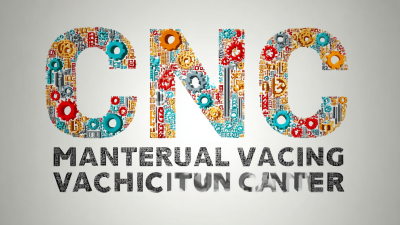
2025 Market Insights: How to Choose the Best CNC Vertical Machining Center for Your Business
-
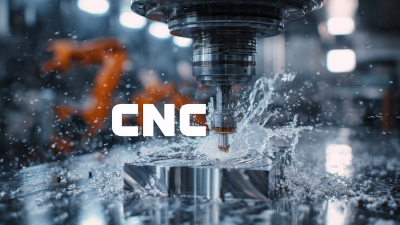
Crafting Excellence with the Best CNC Machines from China for Global Service
-
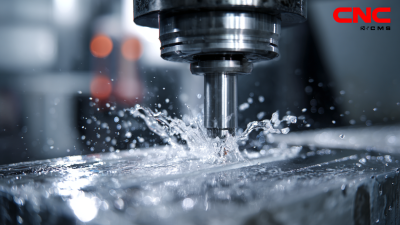
Challenges Associated with Choosing the Best CNC Milling Machine for Your Needs
-
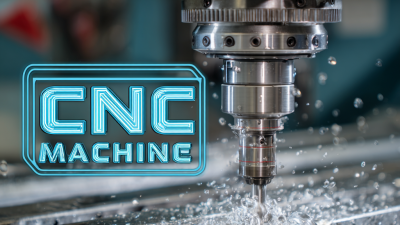
How to Choose the Best Multi Axis CNC Machine for Your Manufacturing Needs
-
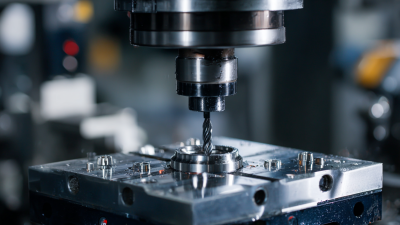
The Ultimate Guide to Choosing the Best CNC Mill for Your Business Needs
-

The Ultimate Guide to Mastering CNC Milling Machines for Precision Engineering